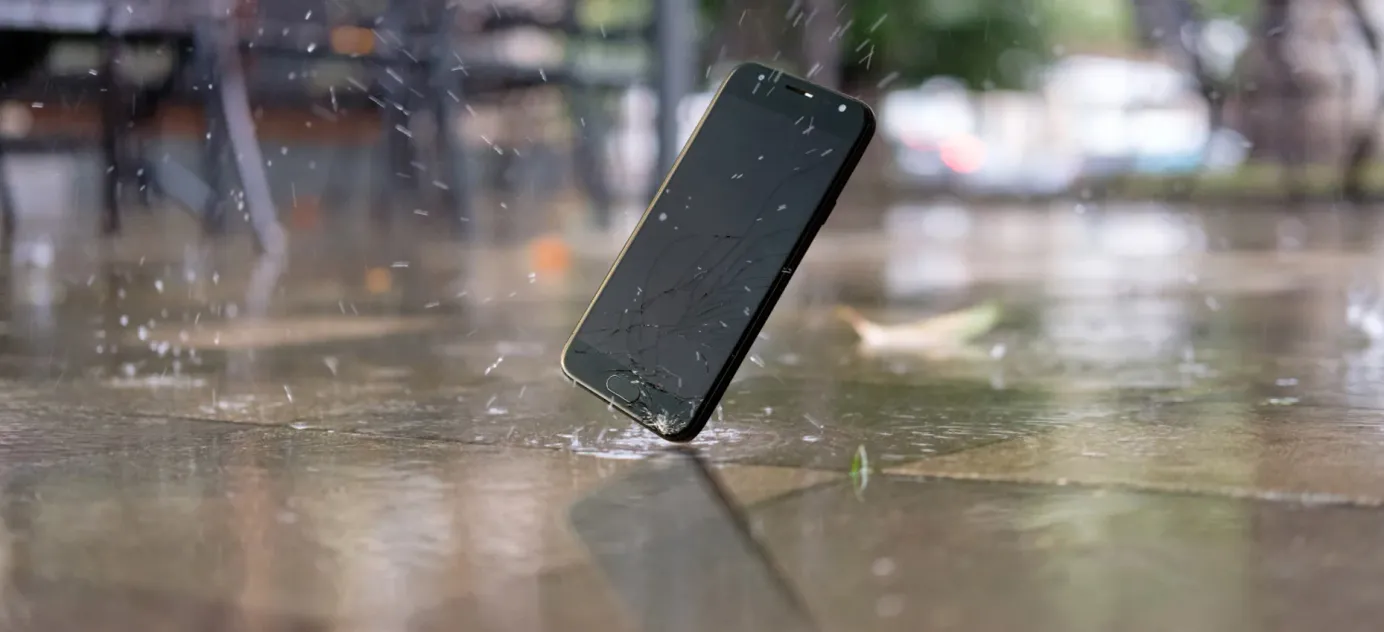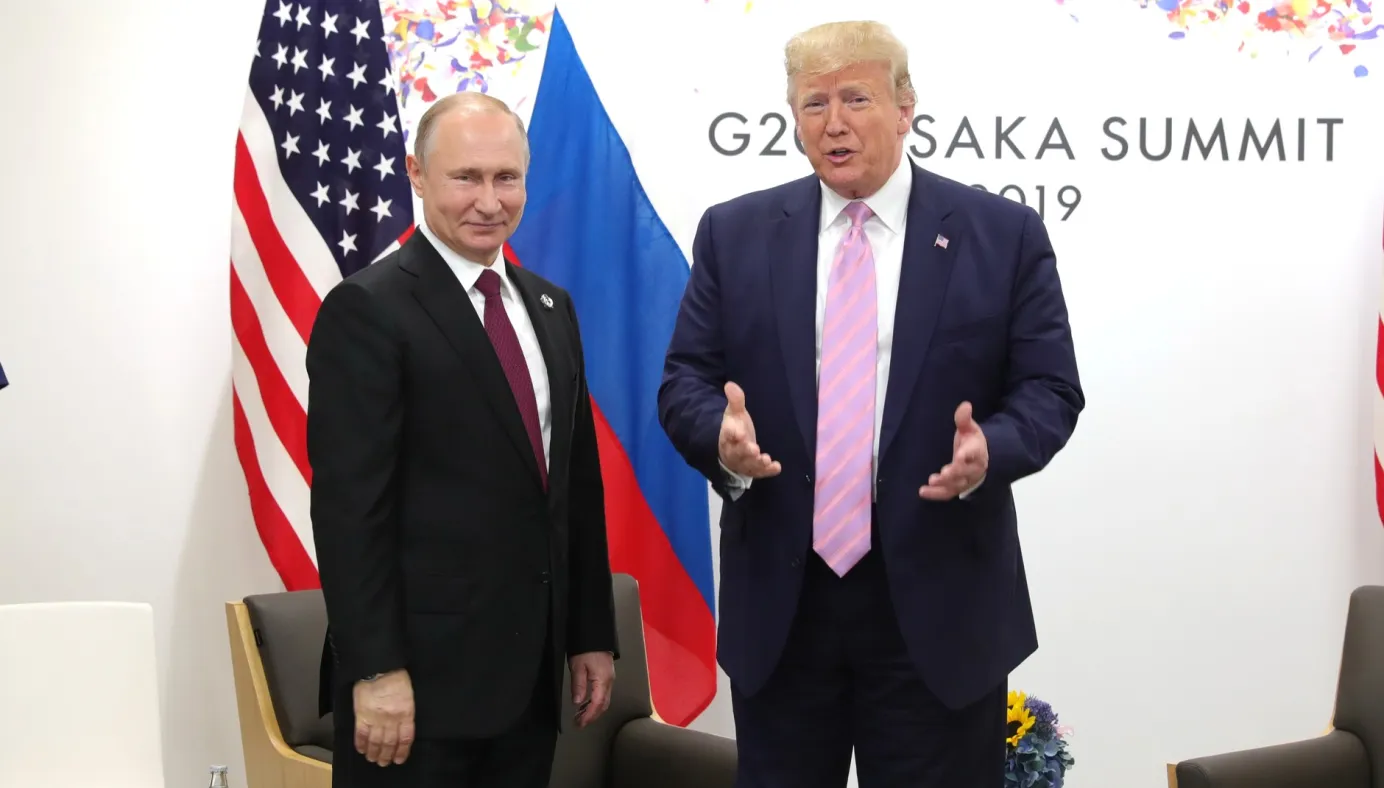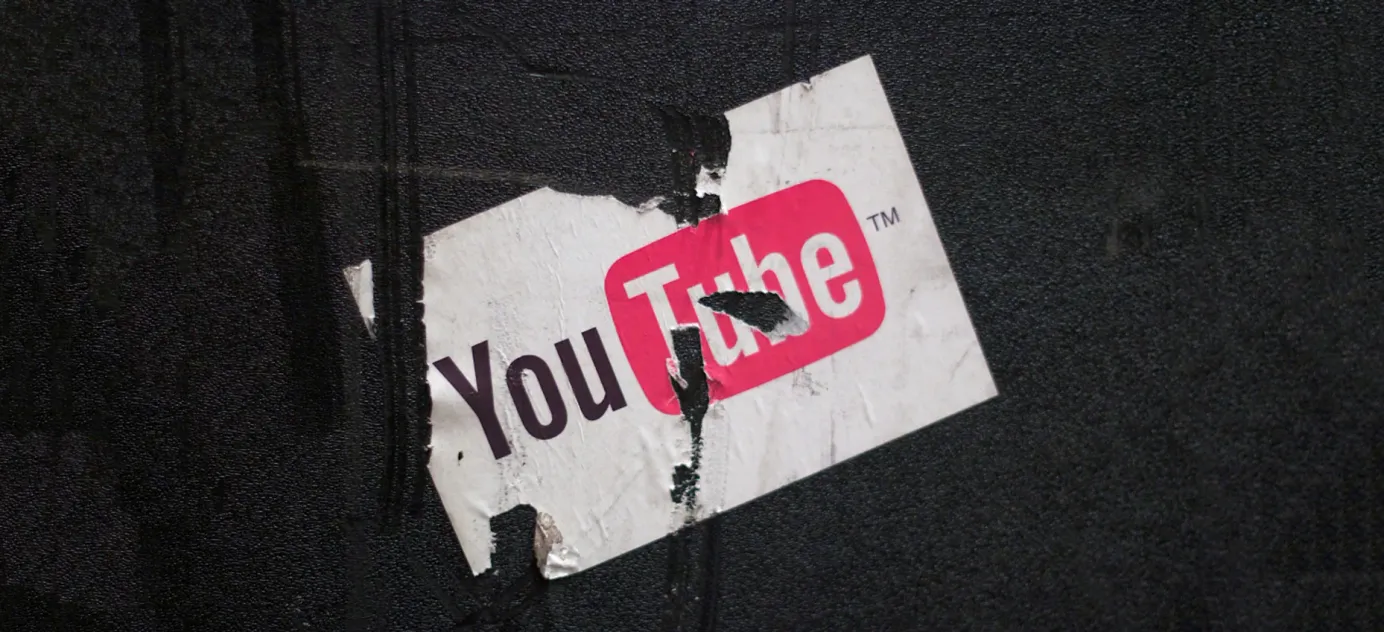
THE BELL WEEKLY: Billion-dollar loss for Russia's Facebook
Hello! Our main story this week is how the state is going to bail out VK after a staggering loss and mounting debt pile. We also cover the jailing of a Soviet-era dissident, once targeted by Vladimir Putin at the KGB, and highlight how the authorities are no longer trying to link Ukraine to Russia’s worst terror attack in 20 years.
VK verbucht hohen Verlust und plant massive Finanzspritze
Der Tech-Gigant VK, der die größte Social-Media-Seite des Landes betreibt und oft als "Russlands Facebook" bezeichnet wird, hat für das Jahr 2024 erschütternde Zahlen vorgelegt: einen Milliardenverlust und eine Gesamtverschuldung von mehr als 2 Milliarden Dollar. Nun muss das Unternehmen, das vom Kreml massiv unterstützt wird, um eine inländische Alternative zu YouTube zu schaffen, mit hartem Geld gestützt werden - wofür bereits ein Plan aufgestellt wurde.
- VK ist eines der führenden Technologieunternehmen in Russland. Doch während die Einnahmen im vergangenen Jahr um 23 % von 120 auf 148 Mrd. Rubel (1,4 Mrd. $ auf 1,7 Mrd. $) stiegen, verdreifachte sich der Nettoverlust fast - von 34 auf 95 Mrd. Rubel (0,4 Mrd. $ auf 1,1 Mrd. $). Dadurch stieg die Schuldenlast des Unternehmens um 50 % auf 174 Mrd. Rubel (2,1 Mrd. USD) und das Verhältnis von Schulden zu Kapital auf einen sehr hohen Wert von 6,6. Im Vergleich dazu liegt das durchschnittliche Verhältnis im US-Tech-Sektor bei 0,19 und bei Facebook-Eigentümer Meta bei 0,16.
- In der Pressemitteilung des Unternehmens wurde taktvollerweise keine dieser atemberaubenden Zahlen genannt. Stattdessen sprach es von einem Anstieg der Werbeeinnahmen um 20 % auf 96,1 Milliarden Rubel (1,1 Mrd. USD) und unterstreicht damit seinen Anspruch, die größte Social-Media-Website in Russland zu sein. Letztes Jahr gab das Unternehmen an, dass die durchschnittliche tägliche Nutzerzahl bei 77 Millionen liegt. Innerhalb Russlands ist die Plattform jedoch immer noch weniger beliebt als der Messenger Telegram, dessen Gründer Pavel Durov VK in den 2000er Jahren ins Leben rief (lesen Sie hier mehr über Durov, VK und Telegram). Laut Mediascope-Daten hatte VK eine durchschnittliche tägliche Reichweite von 59 Millionen in Russland, während Telegram auf 68 Millionen kam.
- Die Tatsache, dass VK es nicht für nötig hielt, in der Pressemitteilung auf den riesigen Verlust hinzuweisen, ist nicht nur eine geschickte Unternehmenskommunikation. Seit 2021, als ein Anteil an VK an Unternehmen ging, die mit Juri Kowaltschuk, einem engen Freund von Wladimir Putin, verbunden sind, und noch mehr seit der russischen Invasion in der Ukraine im Jahr 2022, besteht die Hauptaufgabe des Unternehmens aus dem Kreml nicht darin, Geld zu verdienen, sondern sein Publikum zu rekrutieren und aufzubauen. VK hat sicherlich versucht, diese Rolle zu erfüllen, indem es riesige Summen für den Aufkauf von Inhalten und Exklusivverträge mit Urhebern ausgab. Aber die Dinge begannen sich erst in die richtige Richtung zu bewegen, als die Behörden begannen, YouTube zu drosseln - ein Schritt , den der Kreml genau deshalb unternahm, um den Erfolg von VK zu sichern.
- Es erwies sich jedoch als unmöglich, diese Strategie rentabel zu machen. Die finanzielle Leistung von VK wurde immer schlechter. Der Staat hat bereits einmal eingegriffen, um das Unternehmen zu retten, und zwar mit einer Finanzspritze von 60 Milliarden Rubel aus dem Nationalen Wohlfahrtsfonds im Frühjahr 2023. Jetzt ist es Zeit für eine weitere Rettung. Das Unternehmen kündigte an, 115 Mrd. Rubel (1,4 Mrd. USD) an zusätzlichen Aktien zu platzieren - zu einem Preis von 326 Rubel (3,85 USD) pro Stück, d. h. 6 % über dem aktuellen Marktpreis. Bestehende Aktionäre haben das Recht, sich zu einem Preis einzukaufen, der im Verhältnis zu ihren derzeitigen Anteilen steht.
- Die Aktien, die von ihnen nicht eingefordert werden (es dürfte sich um die Mehrheit handeln), werden im Rahmen einer geschlossenen Zeichnung an Dritte verkauft. Wahrscheinlich werden sie entweder von einer staatlichen Institution oder einem Oligarchen aufgekauft, der vom Kreml direkt mit der Rettung des Unternehmens beauftragt wurde. Es ist noch nicht klar, wer mit dieser Aufgabe betraut wird.
Warum sich die Welt dafür interessieren sollte:
Es ist nicht so wichtig, wer neuer Großaktionär von VK wird: Die Mehrheitsbeteiligung bleibt beim Gasriesen Gazprom und Yury Kovalchuk. Und die strategische Ausrichtung des Unternehmens wird weiterhin von Sergej Kirijenko, dem stellvertretenden Leiter der Präsidialverwaltung und Vater des VK-Vorstandsvorsitzenden Wladimir Kirijenko, bestimmt. Interessanter sind jedoch die Zahlen selbst. Wer auch immer dem sozialen Netzwerk aus der Patsche hilft, wird fast so viel ausgeben müssen, um die Verluste von VK zu decken, wie zur Rettung der gesamten russischen Kohleindustrie erforderlich ist, einem der am schlechtesten abschneidenden Sektoren des Landes, der in den letzten Monaten einer Katastrophe nahe gekommen ist.
Russia jails dissident once targeted by Putin at KGB for 16 years
A court in St. Petersburg has sentenced Alexander Skobov, a 66-year-old Soviet dissident and activist, to 16 years in jail on charges of justifying terrorism and joining a terrorist group. Skovov was first arrested more than four decades ago and Vladimir Putin was among the KGB officers who worked on his case. Prosecutors said Skobov justified terrorist attacks on Russian territory and supported the Freedom of Russia legion, which Russia has deemed a terrorist organisation for fighting alongside Ukrainian forces.
- Skobov will spend the first three years of his sentence in prison (typically reserved for highly dangerous criminals such as kidnappers and terrorists and repeat offenders), with the rest in a high-security penal colony. He will be 80 by the time he can be released, although it is questionable whether he will survive that long in Russia’s harsh prison system. The activist has many health problems, including diabetes, hepatitis C, asthma and glaucoma.
- At the court hearing, Skobov made clear that he did not believe he was facing a fair trial. He refused to answer questions and did not stand when the judge addressed him. “Today they will ask me again – do I plead guilty? Well, now I’m the one asking,” he said in his closing statement. “It’s me asking the servants of Putin’s regime who are present here, who are small cogs in his repressive regime: do you plead guilty to complicity in Putin’s crimes? Do you repent of your complicity?”
- In the USSR, Skobov was repeatedly charged with “anti-Soviet” offenses. He was first arrested in 1978 on charges of distributing anti-Soviet leaflets and was sentenced to two years in a psychiatric hospital (punitive psychiatry was widespread in the Soviet Union and used as one of the main tools of repression in the 1960s, 70s and 80s). Skobov was forcibly hospitalized again in 1982 for daubing anti-Soviet graffiti on the walls of a building and then released in 1985.
- Vladimir Putin, who worked in the Fifth Department of the KGB that was tasked with combating “ideological sabotage,” was among the KGB officers that handled his original cases, independent media and rights groups reported.
Warum sich die Welt dafür interessieren sollte:
This is far from the first instance when somebody in Russia has been imprisoned for a post on social media. Since 2010, prosecutors have openedmore than 1,000 such criminal cases. But a 16-year sentence for an elderly activist in frail health stands out as particularly punitive. It’s safe to say that treatment of dissidents in modern Russia is growing far tougher than it was in the post-Stalin Soviet Union.
Russia no longer pushing Ukrainian link to Moscow concert hall massacre
Russian authorities appear to have quietly lost interest in pushing the idea that Ukraine was somehow connected to the worst terrorist attack in Russia of the last two decades. On the first anniversary of the Crocus City Hall massacre, officials barely mentioned the alleged Ukrainian link — something which they never provided any evidence for, but was nonetheless talked up by President Vladimr Putin in the days after the attack.
- March 22 was the first anniversary of the worst terrorist attack in Russia for 20 years — the massacre at the Crocus City Hall concert venue on the outskirts of Moscow. Masked gunmen opened fire on spectators at a rock concert then set the building on fire in an attack that killed 145 and wounded more than 1,000. In the days after the atrocity, Putin spoke about a “Ukrainian trace” to the attack, even though it had been claimed by Islamic State and the suspects were all citizens of Tajikistan. No evidence was ever presented for the alleged involvement by Kyiv, with the fact the suspected gunmen were arrested while apparently trying to flee Russia to the west — either into Belarus or Ukraine — the only thing proponents of the “Ukrainian trace” theory could concretely point to.
- Russia has arrested 19 people, including the four alleged perpetrators, with the case materials running to 420 volumes. The investigation has concluded but the case has not yet been brought to trial as the defense team has not sifted through the material, said Oleg Vlasov, one of the defense lawyers. The final version of the investigation concluded that the terrorists were recruited by the Islamic State’s Khorasan branch, an Afghan-based offshoot of the jihadist group, he said. However, the location of those who ordered the attack is unknown. After carrying out the massacre, the perpetrators were ordered to remain in place and “meet” the security services, the Russian investigation alleged. But instead they refused and tried to escape. Vlasov said he believes the coordinators of the attack intended for the gunmen to be killed when law enforcement arrived on the scene, thus wiping out the possibility of interrogations.
- When the organizers realised the gunmen had fled, they advised them to head for Ukraine, Vlasov said — but were given no instructions about how to cross the border. The lawyer thinks it is possible that the organizers hoped they would be shot by patrols on either side of the border. Meanwhile, the day after the attack, Putin claimed that a “window” had been prepared for the gunmen to cross the border into Ukraine and FSB chief Alexander Bortnikov said that they were “expected” in Ukraine.
- On the anniversary of the terrorist attack, Russian officials did not appear bothered about trying to double down on the claims of Ukrainian involvement. In a statement on Telegram, Russia’s Investigative Committee said the attack was planned and organized by the “security services of an unfriendly state with the aim of destabilizing the situation in Russia.” They did not specify which state they had in mind.
Warum sich die Welt darum kümmern sollte
Amid Russia’s war in Ukraine, the Crocus City Hall terror attack quickly faded from view. It seems that even the authorities have forgotten how, in the aftermath of the massacre, they tried to persuade everyone that Kyiv was involved.










